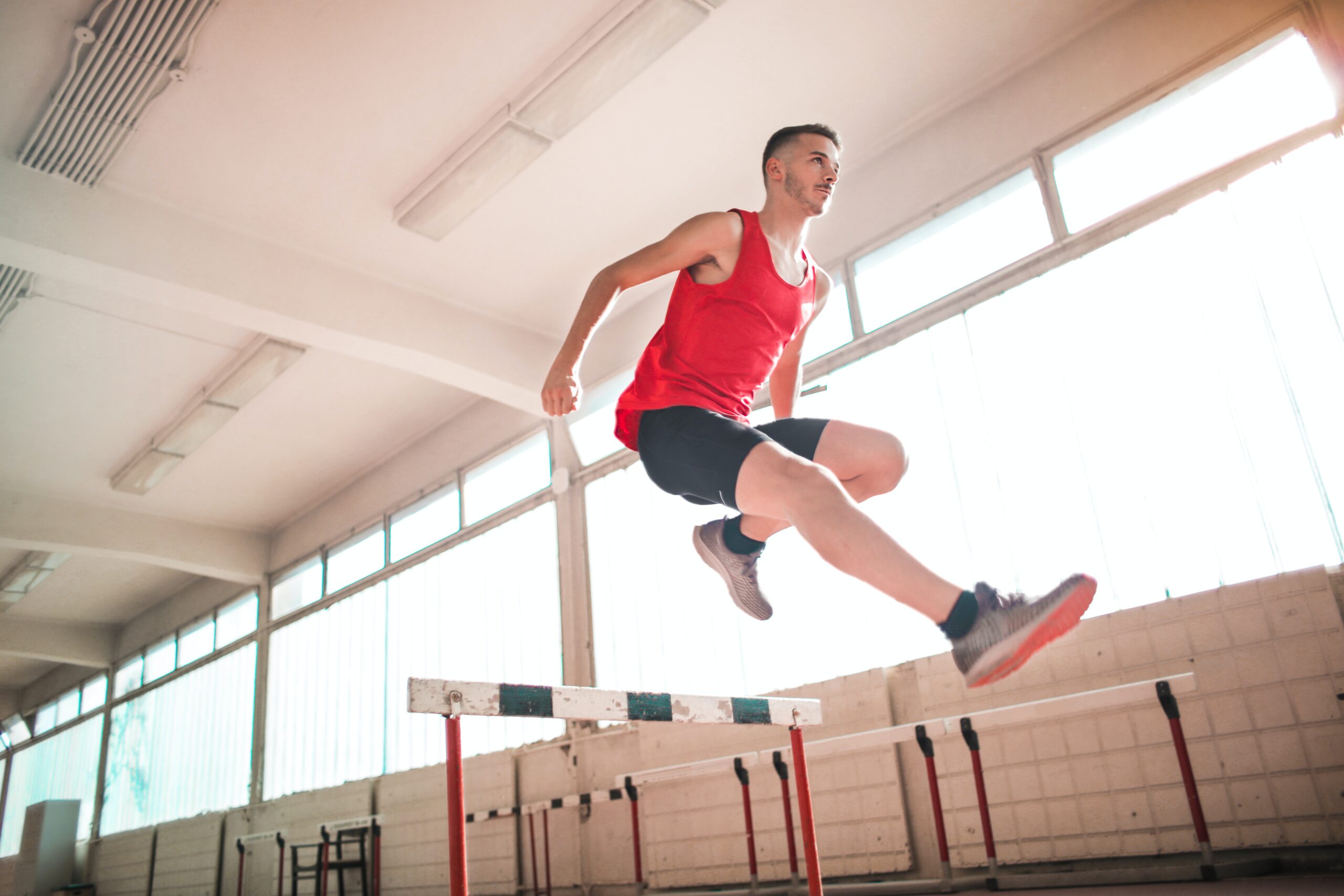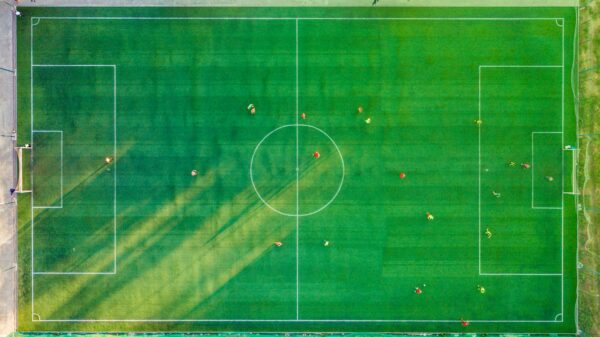As athletes, we all know the importance of physical training, nutrition and rest in achieving peak performance. However, there’s one crucial element that is often overlooked – hydration. Proper hydration helps to maintain a healthy body temperature, regulate heart rate and blood pressure, prevent muscle fatigue and cramping, and improve overall athletic performance. In this blog post, we’ll delve into why hydration is so important for sports performance and share some tips on how to stay hydrated during workouts or competitions. So grab your water bottle and let’s dive in!
Introduction: What is Hydration?
Proper hydration is crucial for optimal sports performance. With the human body being composed of approximately 60% water, maintaining adequate hydration is essential for its proper functioning. Water is involved in various bodily functions, such as regulating body temperature and transporting nutrients and oxygen to cells. Sweating during physical activity leads to water loss, which must be replenished to maintain proper hydration levels. Failure to replace lost fluids can result in dehydration, even in its mild form, leading to decreased athletic performance. In severe cases, dehydration can cause life-threatening conditions like heat exhaustion or heatstroke. To ensure optimal performance and prevent potential health risks, it is important to prioritize hydration before, during, and after exercise or competition.
Why is Hydration Important for Sports Performance?
Hydration is important for sports performance because it helps the body to regulate temperature, maintain blood pressure, and prevent dehydration. When the body is properly hydrated, it can perform at its best. Dehydration can cause fatigue, muscle cramps, and other problems that can impede athletic performance. For these reasons, it is important to drink plenty of fluids before, during, and after exercise or competition.
By staying properly hydrated, athletes can improve their endurance, reduce the risk of injury, and perform at their peak.
How Much Should Athletes Drink?
Water is essential for life and is involved in many important functions within the body, including regulating body temperature, transporting nutrients, and cushioning joints. Despite its importance, water is often overlooked as a key component of sports performance.
Adequate hydration is crucial for athletes because it helps maintain blood volume, prevent heat illness, and improve performance. Blood volume is the amount of blood circulating in the body and is necessary to transport oxygen and nutrients to working muscles. When blood volume decreases, heart rate increases in an attempt to maintain oxygen delivery to the muscles. This can lead to fatigue and decreased performance.
Heat illness occurs when the body’s ability to regulate its internal temperature is impaired. This can happen when an athlete does not drink enough fluid or sweats excessively without replenishing lost fluids. Symptoms of heat illness include muscle cramps, nausea, headache, and dizziness. In severe cases, heat stroke can occur, which can be fatal.
Proper hydration also plays a role in optimizing sports performance. Dehydration can lead to decreased blood flow to working muscles, increased perceived exertion (how hard exercise feels), and impaired mental function. These factors can all contribute to decreased performance during competition.
So how much fluid does an athlete need? The American College of Sports Medicine (ACSM) recommends that athletes drink enough fluid so that they do not become dehydrated during exercise. They advise that athletes should drink 17-20 ounces of fluid 2- 3 hours before exercise, 7-10 ounces of fluid every 10-20 minutes during exercise, and 16-24 ounces of fluid for every pound lost after exercise.
It is important to remember that everyone is different and individual hydration needs may vary based on factors such as the type and duration of activity, environment, sweat rate, and fitness level. The best way to ensure proper hydration is by monitoring body weight before and after exercise.
The Benefits of Proper Hydration
Proper hydration is essential for optimal sports performance. Dehydration can negatively affect physical and mental performance, and it can lead to dangerous health conditions. That’s why it’s important to stay properly hydrated before, during, and after exercise or competition.
There are many benefits of proper hydration, including:
• Improved physical performance. When you’re properly hydrated, your body functions at its best. You’ll have more energy and endurance, and you’ll be able to perform at a higher level.
• Reduced risk of injury. Dehydration can make you more susceptible to injuries, such as heat stroke and muscle cramps. By staying properly hydrated, you can help reduce your risk of injury.
• Better mental performance. Dehydration can cause fatigue, irritability, and difficulty concentrating. Staying properly hydrated will help you stay sharp mentally as well as physically.
• Faster recovery from exercise. Proper hydration helps your body recover from exercise more quickly and efficiently. When you rehydrate after exercise, you replace the fluids that were lost through sweating and help your muscles repair themselves faster.
These are just a few of the many benefits of proper hydration for athletes. If you want to perform your best in sports, make sure you’re drinking enough water throughout the day and during exercise or competition.
Symptoms of Dehydration and How to Avoid It
Dehydration is a major cause of poor sports performance, and it can have serious consequences for your health. Symptoms of dehydration include thirst, dry mouth, dark urine, fatigue, and headache. You can avoid dehydration by drinking plenty of fluids before, during, and after exercise; wearing loose, comfortable clothing; and avoiding excessive heat and humidity.
It is important to understand your individual needs and drink enough water to stay properly hydrated. Keep a bottle of water with you at all times and take regular sips throughout the day. Consume electrolyte-rich fluids like sports drinks during and after exercise. Eating foods with high water content, such as fruits and vegetables, can also help keep your body hydrated.
Practical Tips for Staying Hydrated During Exercise
When it comes to staying hydrated during exercise, there are a few key things to keep in mind. First, make sure to drink plenty of fluids in the hours leading up to your workout. This will help ensure that you’re starting out hydrated and will make it easier to maintain that throughout your session. Second, avoid sugary or alcoholic drinks before exercise as these can actually dehydrate you. Stick to water or low-sugar sports drinks.
During your workout, aim to drink small amounts of fluid regularly rather than large gulps all at once. This will help your body absorb the fluid more effectively. And finally, don’t wait until you’re thirsty to start drinking – by the time you feel thirsty, you’re already dehydrated. Pay attention to how your body is feeling and drink accordingly.
Following these tips can help you stay hydrated during your exercise sessions and get the most out of your workout.
Conclusion
Staying hydrated is essential for any athlete, regardless of the sport they are playing. The effects of dehydration can be detrimental to an athlete’s performance and can even lead to long-term health issues. By making sure you stay hydrated throughout your athletic endeavors, you will be able to maximize your performance and take advantage of all the benefits that come with being properly hydrated. Remember – drink plenty of fluids before, during, and after games or practices so that you can get the most out of your body!
Hydration is integral to sports performance, as it helps the body maintain its temperature, lubricate joints, and transport essential nutrients and oxygen to muscles. Dehydration can lead to fatigue, difficulty maintaining concentration, increased risk of injury, and decreased physical performance. The importance of hydration should not be overlooked by any athlete. It is important for athletes to consume adequate amounts of fluids before, during, and after physical activity in order to stay properly hydrated. Additionally, athletes should consider using electrolytes supplements or drinks if they are engaging in more intense types of exercise for extended periods of time.










